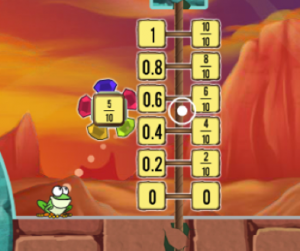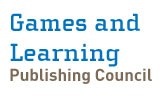
What if algebra were more addictive than Angry Birds? Imagine an eight-year old mastering algebra on an iPad by sorting dragons into boxes. Or, what if middle schoolers could become proficient with fractions by playing a platform game similar to Super Mario Bros? How about if the doorway to mastering Newtonian physics involved ninth graders and digital levers?
Now, what if a video game could both teach students to argue a point in an essay, read Great Books closely for textual evidence, or pursue scientific inquiry and simultaneously serve as a seamless assessment tool that provides teachers, parents, principals, superintendents, and governors with the real-time data needed to ensure that every child receives an excellent education?
Over the past several years, game-based learning and assessment has emerged as a promising area of innovation in education. Learning games and simulations can positively affect student outcomes and support engaging classroom practice. But perhaps their greatest influence on the next generation will be as assessments for learning—that is, assessments that not only measure how well a student has learned the material at hand, but also generate actionable evidence to personalize teaching and learning.
On May 9, 2013, the Bill and Melinda Gates Foundation, the Joan Ganz Cooney Center at the Sesame Workshop, and the Games and Learning Publishing Council convened leading designers and researchers from the Gates Foundation’s Games, Learning, and Assessment (GLA) Network and beyond to become more familiar with each other’s work and discuss common challenges in the field. The gathering was informed by the ground-breaking work of a MacArthur Foundation supported working group, which took stock of the larger issues of 21st century learning and assessment. This GLA Network meeting provided space to share, contextualize innovation, and maximize the potential of the network.
The day aimed to elevate GLA as an emerging field and made clear that game-based assessment is enormously relevant to the broader conversations about next generation assessments, particularly those focused on the Common Core State Standards. Presentations and conversations were framed by questions such as:
- How can we locate assessment at the center of discussions of games and learning?
- Given that 7,000 students drop out of school every day in the U.S., how can game-based assessments serve, inform, and accelerate teaching and learning processes and outcomes?
- How can valid game-based assessment support personalized learning at scale, so that schools and teachers are better equipped to use the “1 million in-school minutes” to maximize the college readiness of each student?
- How can games remain highly engaging and offer relevant, real-world complex problem solving experiences while embedding rigorous, validated measures? How is this accomplished while keeping to the integrity of great games and valid assessments?
- What are the most promising ways that assessment and learning game designers and researchers are negotiating their respective constraints and evolving their approaches and methods?
- In what ways can the games, learning, and assessment field contribute to the evolution of the next generation of assessment tools for the Common Core State Standards and the Next Generation Science Standards? How can we elevate our collective contribution and build bridges?
- How can games, learning, and assessment networks more deeply shape the broader transitions underway regarding the place and functions of assessment?
- How can the new measures of learning that emerge from game-based systems interact with the broader ecosystem of digitally born learning innovations, personalized blended learning models, advanced learning analytics, measures of effective teaching, the science of how people learn, and the promise of the Common Core State Standards?
Speakers included Eva Baker (CRESST), Sasha Barab (ASU), Malcolm Bauer (ETS / GLASSLab), Jody Clarke-Midura (MIT), Ed Dieterle (Gates Foundation), Michael Levine (Cooney Center), Zoran Popovic (University of Washington), Val Shute (Florida State), and Robert Torres (Gates Foundation). Presentations and informal conversations were guided by practical considerations, including how games might be used and adopted in formal education contexts, how they fit into the broader assessment innovation space and the formative and summative assessment markets, challenges to scaling and sustainability, and cognitive models of the learner. Speakers focused on how to create games that maximize engagement and learning and that have the potential for broad adoption and scale.
Attendees included Gates grantees and representatives from leading-edge organizations in the field, each working to advance game-based assessment of the Common Core and Next Generation Science Standards. Among attendees were leaders from Arizona State University’s Center for Games & Impact, Classroom, Inc., the Cooney Center, CRESST, DePaul University, Design Innovation Factory, E-Line Media, Educational Testing Service, Filament Games, Florida State University’s Games, Assessment & Learning Research Group, the Gates Foundation, GLASSLab, iCivics, the Institute of Play, the MIT Education Arcade, Playmatics, and the University of Washington’s Center for Game Science.
GLA Network projects emphasize the assessment of complex skills, engagement, immediate feedback, and data analytics. Projects include: The Sports Network, Refraction, Ko’s Journey, SIMCITYedu, Newton’s Playground, iCivics, intific, the Radix Endeavor, Tenacity, Lure of the Labyrinth, Atlantis Remixed, Collegeology, and Crystal Island Last Investigation. Each employs game play to collect evidence of student mastery, at the intersection of high engagement and high cognitive demand.
From the classroom to the state house, our current approach to assessment has room to improve. Game-based learning and assessment can and should be a central part of the next generation of effective learning. It is well-suited to measure new learning standards, can provide authentic assessment activities and situations for meaningful tasks, and can enhance teaching and learning.
The Games and Learning Publishing Council is inspired by the innovations and progress driven by the GLA Network, and is committed to mobilizing multi-sector leadership of industry, research, philanthropic, policy, and practice leaders to advance the scalability and impact of games, learning, and assessment tools and insights.
Look for the launch of our upcoming gamesandlearning.org website this fall, which will feature reports, market data, and case studies for developers, educators, investors, and policy makers who are interested in this rising market. The site will serve as a resource of research and best practices on using games for learning.
Dr. Eric Tucker is the CEO of the Design Innovation Factory. He has served as a director at the Federal Reserve Bank of New York, a managing director of a consultancy serving high-performing, high-need urban schools, and a co-founder and chief academic officer of the National Association for Urban Debate Leagues. Eric has degrees from the University of Oxford and Brown University, is the editor of The Sage Handbook of Measurement, and the author of Teaching Argumentation and Debate.

